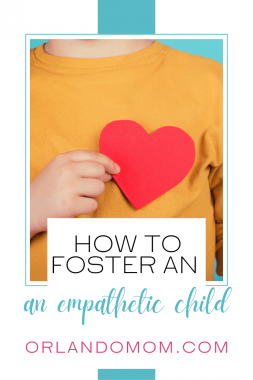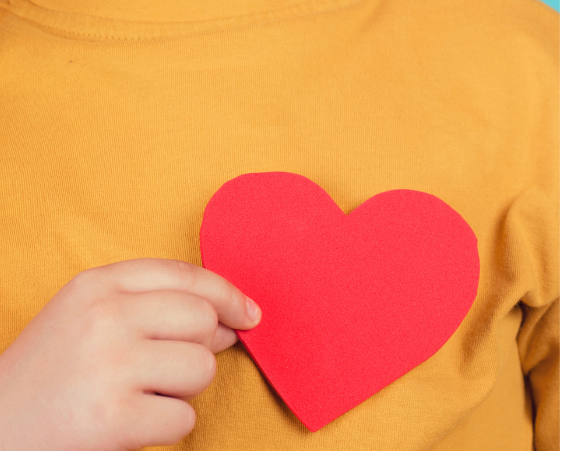Empathy refers to one’s ability to understand and respect what another person is feeling, or “putting ourselves in someone else’s shoes.” It is the root of learning compassion. We know that children learn empathy from the models around them, and that it is a skill that can be foster by a child’s experience. Empathetic children grow to be more caring, respectful, and responsible. Empathic teens and adults are more coachable and receive constructive criticism more readily. They also grow up to be a more empathetic parent, spouse and colleague.
 So, how can you foster an empathetic child? We have some tips for you from our resident School Psychologist, Suzanne:
So, how can you foster an empathetic child? We have some tips for you from our resident School Psychologist, Suzanne:
- Whenever possible, model empathy and kindness towards others. Children are watching others to learn appropriate ways of behaving and interacting and are influenced by the behaviors they see around them. You can be a good role model by acknowledging and valuing others’ feelings, and showing understanding and sympathy when someone is sad, upset, distressed, frustrated or in need of help.
- When children show negative emotions, acknowledge how they feel. Provide nurturing until they signal they are OK to move onto something else.
- Young children sometimes need help understanding what they are feeling, so label the emotion for them. For example, if they are crying, say: “You seem upset. How can I help?”
- Connect feelings, thoughts and behaviors: when talking about feelings, connect behaviors with the feelings for children so that they understand cause and effect. For example: “Claire is feeling sad because Oliver took her toy. What might help Claire feel better?”
- Teaching kids about cause and effect can also be done through stories, play-acting or reading books. Talk to children about the thoughts, feelings and behaviors of the characters. What might the characters do next? Connect these scenarios with the child’s own experiences. For example, if the character is sad because she misses her parents, connect that feeling to a time the child also expressed sadness for something similar. This helps the child more clearly understand the connection between feelings, thoughts and behaviors.
- For older children (aged five and up), ask them to step “into the mind”, or take the perspective, of another child or adult: “How do you think they are feeling? Why might they be upset? What could we do to help?”
- Build a ‘climate’ of empathy: put a focus on working together to build a “climate” that encourages children to be empathic and understanding with their family and friends.
- If your child, or a child in your classroom, is struggling with empathy, try to set them up for success by creating opportunities to be empathic and highlight for them how being kind can benefit everyone involved:
- Provide specific feedback highlighting examples of empathy. For example, “That was very kind of you to help your sister when she lost her favorite toy. I bet she’ll remember that and want to help you when you need it!” This will encourage and foster more of the same types of behavior in the future.
- Encourage your child to volunteer in the community to help them see and experience what it means to be caring, to help others, and be a good citizen. This will also allow them to see other people’s perspectives and make contact with others who may be experiencing different circumstances than your own family. After all, who doesn’t want their child to be caring and considerate of those from all walks of life, and find a way to give back to others?


















